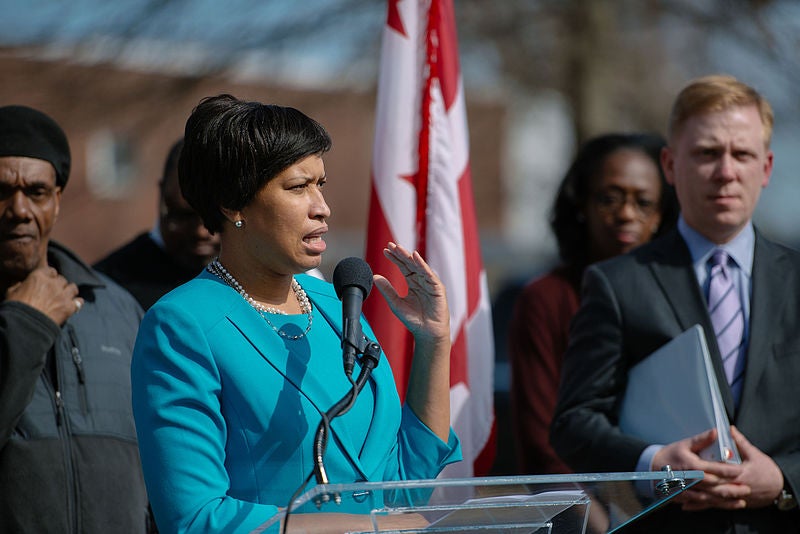D.C. mayor’s 2020 budget promotes clean energy but skirts public works programs

Mayor Muriel Bowser’s proposed budget for the upcoming fiscal year proposed some gains for green jobs and clean energy, but it also put forward some troubling cuts to programs that directly benefit the D.C.’s low-income residents. For many under-resourced residents, this budget runs counter to their needs and it ignores the desperate need for energy equity in the District.
Mayor Bowser’s proposed budget slashes funds to several programs that are critical to keeping utility costs low, including energy assistance benefit payments, the Clean Rivers Impervious Area Charge (CRIAC) relief fund, and toxic substances control. Energy assistance benefit payments, which are associated with the Low-Income Home Energy Assistance Program (LIHEAP), would lose $646,000. Toxic substance control funds, which help protect District residents from things like pesticides, hazardous waste, and petroleum stored underground, would lose $776,000. But most troubling of all, the CRIAC relief fund faces a nearly 50% budget cut of $3.5 million. This fund helps low to moderate-income families combat increasing water bills due to the court-ordered mandate that created the Clean Rivers Program. CRIAC’s budget must increase every year as water bills rise, but cutting the program’s relief fund may threaten the affordability of clean water in our nation’s capital.
If the mayor is committed to making energy — not to mention living — in the District affordable, her administration must also address the inequity in our utility infrastructure. Low-income families spend, on average, close to 8% of their income on utility bills. By cutting programs that are designed to help low-income residents keep up with ever-increasing utility costs, the city becomes less affordable. Mayor Bowser’s proposed budget fails to commit to low-income District residents and their needs.
The budget does include increases for Energy Affordability (up by $574,000) and Energy Efficiency and Conservation efforts (up by $2 million), these increases fail to make up for the effects the aforementioned cuts will have on low-income residents.
The District’s focus on renewable energy programs and its other energy efficiency measures will eventually help reduce the high utility burden that low-income families face. However, cutting energy assistance programs before they have been widely implemented is a disservice to low- and moderate-income District residents. The Mayor’s proposed budget kneecaps the progress of its prized renewable energy initiatives before they even have a chance to be successful.
Any budget proposal for the District must reflect the District residents’ priorities. If you don’t agree with how your tax dollars are being allocated, I urge you to contact your councilmembers and urge them to consider rejecting these cuts and choosing the District’s residents over the interests of energy monopolies.
